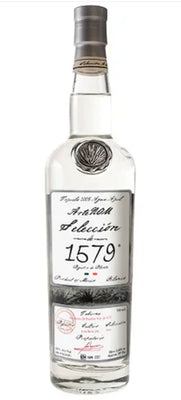Red wine isn't just a luxurious indulgence-it may also support your health when enjoyed mindfully. Thanks to its rich supply of natural antioxidants, particularly resveratrol and quercetin, red wine is gaining scientific attention for its potential health benefits.
However, moderation is key. Most health experts recommend limiting consumption to one 5 oz glass per day for womenand up to two for men to avoid adverse effects.
Here's a closer look at seven science-supported health benefits of red wine, designed to help you sip smarter.
1. Slows Signs of Aging
Red wine's resveratrol acts as a powerful antioxidant, helping to reduce oxidative stress in your body-a major cause of premature aging and degenerative diseases. This compound can:
-
Improve skin elasticity
-
Reduce cellular damage
-
Lower the risk of age-related diseases
Study: Red wine consumption and longevity: A meta-analysis from BMC Medicine shows light-to-moderate alcohol intake, particularly red wine, is associated with lower all-cause mortality. (source).
2. Supports Heart Health
Moderate red wine consumption is linked to improved cardiovascular function, often called the "French Paradox." Polyphenols in red wine help:
-
Raise HDL (good) cholesterol
-
Reduce LDL (bad) cholesterol
-
Improve blood vessel function
Study: Wine, polyphenols, and cardiovascular disease risk: A critical review published in Nutrients directly links red wine consumption to reduced cardiovascular risk, highlighting polyphenols' role in improving endothelial function and reducing blood pressure. (source).
3. Boosts Brain Function
Resveratrol may protect your brain from age-related cognitive decline by improving blood flow and reducing plaque formation in the brain.
-
Enhances memory retention
-
May help prevent Alzheimer's disease
Study: Meta-analysis (older adults, wine only): Moderate wine drinkers had a 28-35% lower risk of cognitive declinecompared to nondrinkers (source).
4. Supports Healthy Blood Sugar
Moderate red wine intake can help regulate blood sugar levels and improve insulin sensitivity.
-
Reduces blood glucose spikes
-
Lowers risk of Type 2 Diabetes
Study: Clinical trial (T2D patients): 360 mL/day of red wine for two weeks increased insulin sensitivity by 43% (source)
5. May Reduce Cancer Risk
Compounds like quercetin and resveratrol may inhibit cancer cell growth and reduce inflammation associated with cancer development.
-
Lowers risk of lung and colon cancer
-
Inhibits abnormal cell proliferation
Study: Comprehensive review (73 studies): Found no increased general cancer risk and possibly protective trends for lung, skin, brain, and pancreatic cancers (source).
6. Improves Fat Metabolism
Resveratrol helps block the formation of fat cells while promoting fat oxidation, potentially aiding healthy weight management.
-
Prevents immature fat cells from maturing
-
Supports metabolic efficiency
Study: A 2012 review in Obesity Reviews discusses resveratrol's ability to reduce fat accumulation (source).
7. Strengthens Immunity
Antioxidants in red wine enhance immune function by:
-
Reducing inflammation
-
Combating oxidative stress
-
Protecting against infections like the common cold
Study: A 2004 study in the American Journal of Epidemiology associated moderate red wine consumption with a reduced incidence of common colds (source).
Conclusion: Enjoy Red Wine Wisely
Incorporating a glass of high-quality red wine into your diet can deliver real health benefits-but excess consumption negates these advantages. Focus on moderation, quality, and mindful sipping to make red wine a healthy ritual rather than a guilty pleasure.































